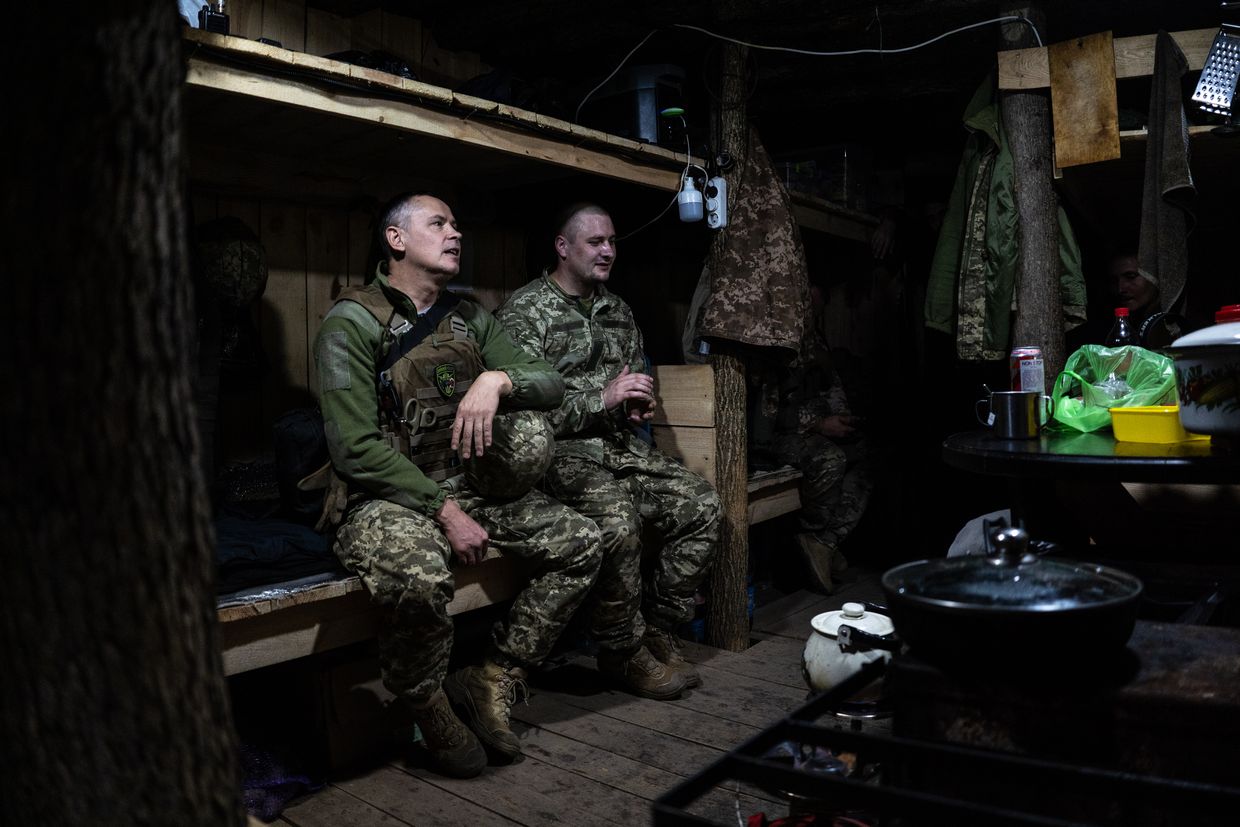Journalists, anti-corruption groups denounce Ukraine’s attempt to increase punishment for state leaks

A sitting of the Verkhovna Rada, Ukraine's Parliament is livestreamed from the session hall in the media room, Kyiv on June 5, 2024. (Eugen Kotenko / Ukrinform/Future Publishing via Getty Images)
Parliament was scheduled to vote on Dec. 3 on a new law proposing up to eight years imprisonment for accessing or disseminating confidential state register information during martial law, a bill that Ukrainian media and human rights organizations have urged parliament to reject on free speech concerns.
However, parliamentary voting ended for the day without the bill coming up for vote.
“This is an attempt by the authorities to hide their dirty laundry from those who most often reveal it to the world, from investigative journalists,” Vitaliy Shabunin, head of the nonprofit Anti-Corruption Action Center's executive board, said about the bill.
“Moreover, not just to hide information, but to imprison those who help journalists – their sources – and curb investigative actions not only of journalists, but also of the editorial offices of large media outlets where their investigations are published,” Shabunin told the Kyiv Independent.
Recent investigations that have exposed corruption in Ukraine — such as reporting on illegal border-crossing schemes and the enrichment of officials in the Prosecutor’s Office — would have been illegal to publish under the new law had it been in place at the time, and could have carried harsh sentences for the journalists or their sources.

While the bill was on the parliamentary schedule for a Dec. 3 vote, a source in parliament told the Kyiv Independent that representatives of the European Union and G7 have appealed to parliament’s leadership, requesting a postponement of the vote in order to assess its compliance with EU law. It is unclear what the next plans for the bill are.
Parliament passed the bill in a first reading in January. At the time, many lawmakers opposed the bill, but it was allowed to continue to the second reading.
On Nov. 27, parliament’s Committee on Law Enforcement recommended adopting the draft law and sent it to parliament for a second and final reading. Proponents of the law say it is a matter of national security during martial law to protect sensitive information.
If the bill is passed, it will be sent to President Volodymyr Zelensky to be signed into law.
Fears of free press crackdowns
Current legislation carries a minor punishment for the illegal dissemination of nonpublic register information. The new changes to the criminal code would designate this activity a more severe type of violation and give law enforcement additional powers for carrying out investigations against sources and journalists suspected of violating the law, including secret wiretapping.
"This is an attempt by the authorities to hide their dirty laundry from those who most often reveal it to the world" - Vitaliy Shabunin, head of AntAC's executive board.
In an open letter published on the eve of the scheduled vote, journalists, media activists and human rights organizations urged parliament to reject the bill.
“This draft bill poses significant threats to freedom of speech, the work of journalists, and the protection of journalists' sources and corruption whistleblowers in Ukraine,” wrote the Mediarukh (Media Movement), an informal organization of Ukrainian media, journalists and public organizations, in an open letter.
The law does not contain any protections for those who disclose confidential information that is of public importance, and the proposed punishment is disproportionate, the letter says.

“The transformation of such offenses into serious crimes opens up the possibility of using secret investigative actions against journalists, in particular wiretapping and surveillance, which significantly violates the standards of protection of information sources,” the letter says.
Among the signatories of the open letter were major anti-corruption organizations and investigative reporting outlets in Ukraine, including the Anti-Corruption Action Center, Bihus.info, Ukrainian Pravda, and Slidstvo.Info.
Lawmaker Yaroslav Yurchshyn, who heads parliament’s Freedom of Speech Committee, wrote on Facebook last week that he would urge his colleagues in the Holos party not to vote for the bill.
“There are incredibly cool investigative journalists in Ukraine, whose work will simply be killed by this draconian bill. And this will be a huge gift to corruption lovers,” Yurchyshyn wrote. “You can dance around alleged information security for a long time, but all this looks like an attempt to attack freedom of speech.”
Ukrainian media organizations have been raising concerns for months of increased pressure from authorities.
After attempts to discredit and intimidate journalists earlier this year produced widespread condemnation, media organizations have continued to name examples of censorship attempts, political interference, and allegations of journalists being drafted into service as retribution for their coverage.










